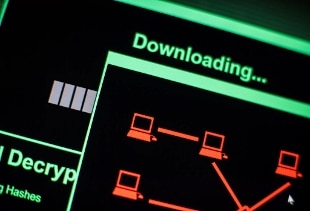Lamezia, an employee used airport computers to produce virtual money
Tinexta buys three companies and enters the cybersecurity market
Cyber-security, Police: boom of attacks, it is emergency
The EU Council sanctions those responsible for cyber-attacks from Russia, China and North Korea
Share
October 30, 2020 A technician, an employee of Sacal, a company that manages the IT services of the Calabria airports,
used the servers of the Lamezia Terme airport to 'mine' cryptocurrency
.
Identified by the postal police, he is now being investigated by the Public Prosecutor's Office of Catanzaro and Reggio Calabria, while possible accomplices are sought.
How could this have happened?
"Events like this are
far from sporadic
and affect all those structures in which there are high-capacity computing systems. By abusing the computational resources of these systems, it is possible to 'undermine', or solve complex calculations that make it possible to produce cryptocurrencies",
the engineer Pierluigi Paganini explains to Rainews
, expert in Cybersecurity, member of the Enisa Cti group,
the European Union agency for information security
.
"This process is not very profitable for individuals due to the high costs of operating the mining plant and the energy expenditure, but by abusing third-party resources it is possible to reap significant profits," he adds.
This is the tip of the iceberg, Paganini explains, given that "systems present in unmanned organizations can become objects of interest to groups of criminals or insiders. We think, for example,
of the computing centers present in many universities
, equipped with large capacities. of processing could be exploited to produce crypto currency without anyone noticing ".
And it also happened recently: "In May, cybercrime groups compromised several supercomputers across Europe in universities and research centers. The largest number of attacks were observed in the UK, Germany and Switzerland."
Among the excellent victims, also
the University of Edinburgh
, "whose super computer Archer has been compromised, as well as a cluster of super computers at the
Leibniz Computing Center
(LRZ) belonging to the Bavarian Academy of Sciences, and the
Swiss Center of Scientific Computations
(CSCS) of Zurich ".
The case of
Lamezia Terme
, in Paganini's assessment, "the compromise is the work of an employee: a
more insidious
type of
activity
as the in-depth knowledge of the systems that are compromised could allow the insider to
circumvent or disable the controls
that should be implemented to prevent the resources of a computing system from being used in cryptocurrency mining processes ".

